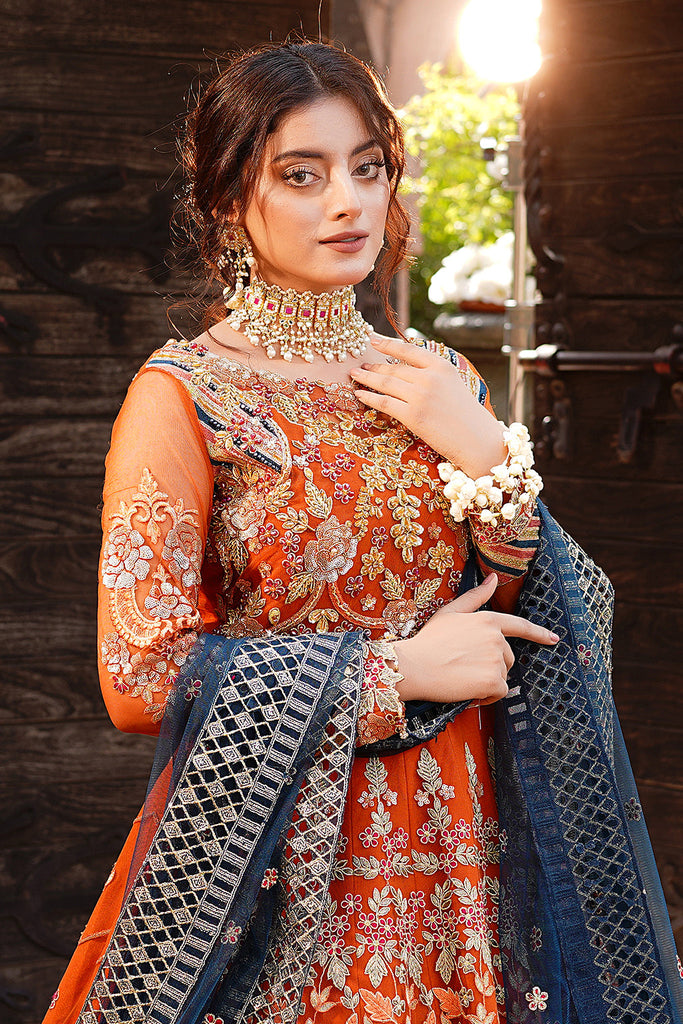Traditional Pakistani Dresses
Posted by M.IMRAN MUGHAL

Pakistani traditional dresses for women are a remarkable fusion of culture, heritage, and style. With distinct names in each region and unique features that set them apart, these dresses are a testament to the diversity that defines Pakistan. From the fabrics that create luxurious textures to the occasions they grace, these ensembles are more than just garments – they’re a celebration of tradition and identity. In this article, we’ll explore the names of traditional Pakistani dresses, present a curated list of dresses from various provinces, highlight their fabrics, discuss their popularity and appropriate occasions, and offer insights on elegantly wearing these timeless attires.
Names of Pakistani Traditional Dresses for Women
Pakistani traditional dresses encompass a wide range of names that vary from province to province. Among the most prominent names are Shalwar Kameez, Lehenga Choli, Anarkali, Sari, and Sindhi Ajrak Dress. Each of these dresses carries a legacy of craftsmanship and cultural significance.
List of Dresses in Different Pakistani Provinces
- Punjab – Shalwar Kameez: This iconic ensemble consists of loose-fitting trousers (shalwar) paired with a tunic-like top (kameez). Punjab’s Shalwar Kameez often features intricate embroidery, prints, or embellishments, and it’s a popular choice for both casual and formal occasions.
- Sindh – Sindhi Ajrak Dress: The Sindhi Ajrak Dress is known for its vibrant and intricate block prints. This dress is often adorned with mirror work, making it a standout choice for traditional events in Sindh.
- Balochistan – Balochi Dress: The Balochi Dress showcases vibrant embroidery, mirror work, and vibrant colours. Its unique design reflects the Balochi culture and is often worn during festive gatherings.
- Khyber Pakhtunkhwa – Peshawari Dress: The traditional Peshawari Dress is comfortable yet elegant. It typically includes a loose-fitting kameez paired with a shalwar and is favoured for its simplicity and cultural significance.
- Azad Kashmir – Kashmiri Dress: The Kashmiri Dress is characterized by intricate needlework and embroidery, often depicting local flora and fauna. It’s a symbol of the region’s rich craftsmanship.
Fabric and Texture
The fabrics used in traditional Pakistani dresses play a crucial role in their charm. These dresses are crafted from materials such as silk, chiffon, cotton, and georgette. The choice of fabric varies depending on the climate and the formality of the occasion. Rich textures, intricate threadwork, and embellishments elevate these dresses to a higher level of elegance.
Popularity and Occasions
Pakistani traditional dresses remain immensely popular due to their cultural relevance and timeless beauty. They are worn on a variety of occasions, ranging from festivals and weddings to formal gatherings and casual outings. With its adaptability, the Shalwar Kameez is perfect for daily wear, while the Lehenga Choli is a go-to choice for weddings and celebratory events. The Sari, an epitome of grace, is often chosen for formal occasions, and the Sindhi Ajrak Dress is cherished during cultural festivals.
Dressing with Grace
Adorning Pakistani traditional dresses require an understanding of their structure and styling. When wearing a Shalwar Kameez, ensure the kameez fits well and complements the shalwar. Adding a well-draped dupatta enhances elegance. The Sari demands finesse in draping; be sure to secure it properly with pins. A Lehenga Choli should be worn with the blouse fitting comfortably and the lehenga resting on the hips. Accessorize wisely with traditional jewellery, matching the attire’s grandeur.
Pakistani traditional dresses for women are not just clothing; they are an embodiment of culture and heritage. From the iconic Shalwar Kameez to the exquisite Sari, each dress narrates a unique story of its province and people. The choice of fabric, the intricate designs, and the popularity of these dresses reflect their timeless appeal. Whether it’s a celebration of tradition or a fusion with modern fashion, wearing traditional Pakistani dresses allows women to connect with their roots while exuding elegance and grace.


